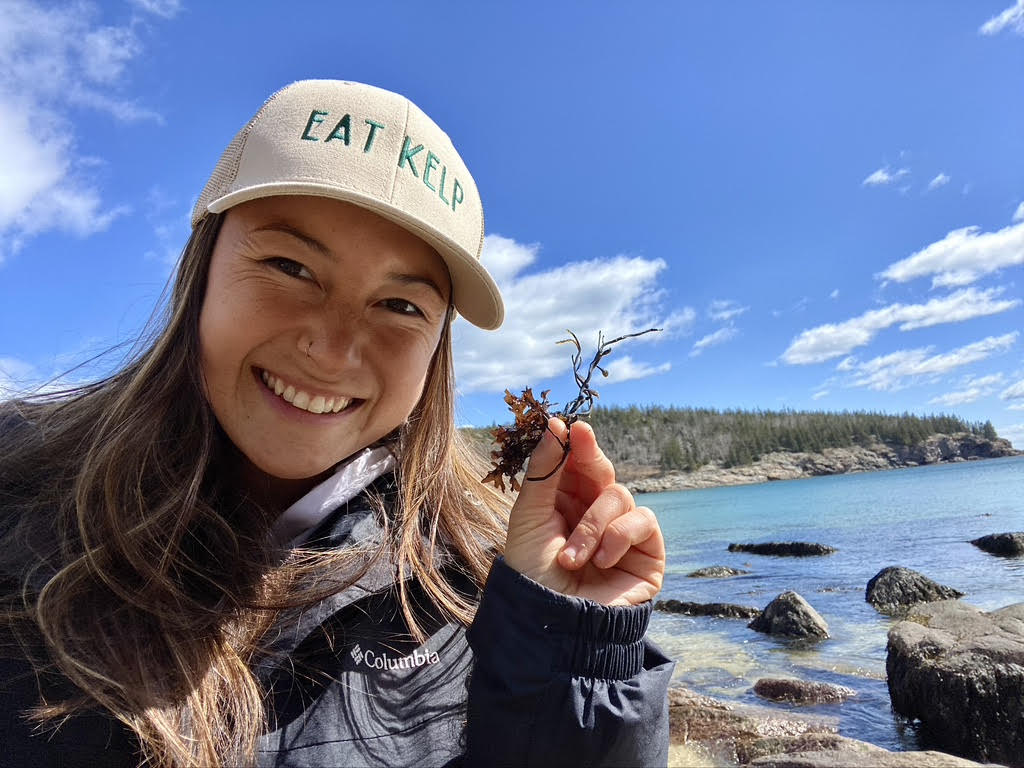
Congratulations to our 2025 Knauss Fellow
Kara Chuang, University of Maine graduate, has recently been selected as a member of the 2025 cohort of the John A. Knauss Marine Policy Fellowship! Chuang is one of 88 students chosen nationwide, and the only graduate in Maine to receive this honor.
“This year’s Knauss Fellowship cohort exemplifies the passion and expertise necessary to address the evolving challenges facing our coasts and oceans,” remarked Dr. Jonathan Pennock, Director of the National Sea Grant College Program. “We are confident that their dedication to serving through science will lead to innovative solutions that sustain coastal and marine resources and communities for future generations.”
The fellowship, established in 1979, provides a unique educational experience to students interested in ocean, coastal, and Great Lakes resources and in the national policy decisions affecting those resources. As a Knauss Fellow, each student will be matched with a ‘host’ in either the legislative or executive branch of the federal government for a one-year paid fellowship working to transfer science into policy and management.
“I am very excited to see how I will grow and learn from this fellowship, both professionally and personally,” said Chuang. “I have been in the aquaculture field for approximately four years now, and though that is where my comfort and career aspirations currently lie, I may be seated in a host office that can provide a completely new experience that will expand my knowledge base and skill set – and that’s exciting!”
As a graduate student at the University of Maine, Chuang was focused on developing and evaluating new microparticulate diet types for marine finfish to be used in commercial hatcheries. Chuang defended her Master of Science in August 2024 and has continued this project as a research professional with the University of Maine Aquaculture Research Institute.
Chuang received her bachelor’s degree in integrative biology from the University of California, Berkeley in 2020, where she studied abroad at the University of Queensland in Australia. Chuang also interned for the National Atmospheric and Oceanic Administration (NOAA) in Juneau, Alaska, where she developed marine science and conservation curriculum for K-12 students. Towards the end of her undergraduate studies, Chuang became involved with an early-stage aquaculture technologies startup called ‘SeaWarden’, which aimed to use satellite imagery to observe shrimp pond aquaculture worldwide; a role that led her to move to Kailua-Kona, Hawai’i.
In Hawai’i, Chuang spent time as a hatchery technician at Blue Ocean Mariculture, the nation’s only offshore finfish aquaculture farm, where she observed the ins and outs of the commercial aquaculture industry from the ground level. “This was the experience that solidified my love for aquaculture and inspired my desire to affect change in the seafood industry,” explained Chuang, “this led me to the decision to make the long move from Hawai’i to Maine to pursue my master’s in marine biology”.
When applying for the fellowship, Chuang was guided by members of the Maine Sea Grant team and connected with previous Knauss Fellows to gather insight into the application process and discuss their fellowship experiences. Though the application submission deadline was in February 2024, Chaung said that she started brainstorming ideas for her application when the notice of the fellowship opportunity was released in October of 2023.
After her fellowship concludes, Chuang aims to help bridge the gap between seafood production and consumers. Through education and outreach, she hopes to better connect people to their food and empower the industry to shift towards more sustainable production practices through the power of an educated consumer base.
“With climate change threatening our world’s resources, it will be difficult to feed a growing population under present and projected future conditions. In other words, food security will be of major concern. I believe in aquaculture as a climate change tool and a way to provide the global population with ample amounts of sustainable sea-raised protein. However, there is much misinformation surrounding the industry, which is hindering its ability to reach its potential.”
Kara will receive her placement by the end of this October and will officially begin her fellowship in February 2025.
Maine Sea Grant is excited to support Kara on this journey.
See the complete list of finalists through the NOAA announcement, learn more about the Knauss Fellowship, and hear from current and past fellows about their experiences. Placement of the 2025 Knauss finalists as fellows is contingent upon adequate funding in fiscal year 2025.
Posted 9 October 2024
